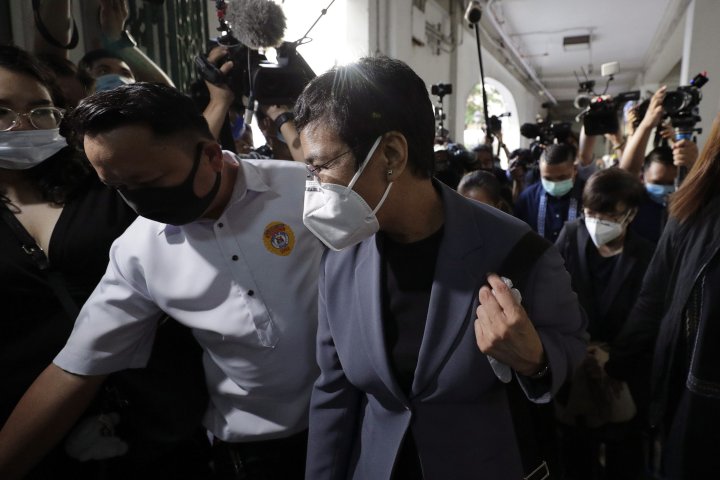[ad_1]

Manila, Philippines — An award-winning journalist critical of the Philippine president was convicted of libel and sentenced to jail Monday in a decision called a major blow to press freedom in an Asian bastion of democracy.
The Manila court found Maria Ressa, her online news site Rappler Inc. and former reporter Reynaldo Santos Jr. guilty of libeling a wealthy businessman. The Rappler’s story on May 29, 2012, cited an unspecified intelligence report linking him to a murder, drug dealing, human trafficking and smuggling. The site’s lawyers disputed any malice and said the time limit for filing the libel complaint had passed.
“The decision for me is devastating because it says that Rappler is wrong,” Ressa said in a news conference after the ruling. Her voice cracking, she appealed to journalists and Filipinos to continue fighting for their rights “and hold power to account.”
Ressa was sentenced to up to six years but was not immediately taken into custody. She posted bail for the case last year, and her lawyer said they will appeal the verdict.
“The verdict against Maria Ressa highlights the ability of the Philippines’ abusive leader to manipulate the laws to go after critical, well-respected media voices whatever the ultimate cost to the country,” said Phil Robertson of Human Rights Watch, adding the verdict was “a frontal assault on freedom of the press that is critical to protect and preserve Philippines democracy.”
President Rodrigo Duterte and other Philippine officials have said the criminal complaints against Ressa and Rappler were not a press freedom issue but a part of normal judicial procedures arising from their alleged violations of the law.
Businessman Wilfredo Keng dismissed the allegations in the 2012 story as baseless and false and said Rappler refused to take down the story online and publish his side of the story. He provided government certifications in court to show that he has no criminal record and sought 50 million pesos ($1 million) in damages, which he said he would donate if he won the case.
Rappler’s lawyers said the story was based on an intelligence report and that the one-year period under Philippine penal law when a libel complaint can be filed had ended when Keng filed a lawsuit in 2017, five years after the story was published online.
A cybercrime law, which Rappler allegedly violated, was also enacted in September 2012 or four months after the story written by Santos was published. Rappler’s lawyers said Philippine penal laws cannot be retroactively applied.
Rappler, however, acknowledged that it updated the story in February 2014 to correct a misspelled word but said it did not make any other changes. The Department of Justice, which brought the libel charges to court, contended that by updating the story, Rappler effectively republished the story online in 2014, an argument dismissed by the news site’s lawyers.
The Department of Justice cited another law to say that a complaint can be filed under the 2012 cybercrime law for up to 12 years, countering Rappler’s argument that Keng’s complaint was invalid due to being outside the one-year deadline for libel.
If the Manila court upholds the Justice Department’s position, journalists and media agencies can be sued up to 12 years after publishing a story.
[ad_2]
Source link
Dear readers, we really need your support to keep on serving you with authoritative, truthful, and juicy stories everyday. For your support, please reach out to the editor @gavelinternational66@gmail.com

